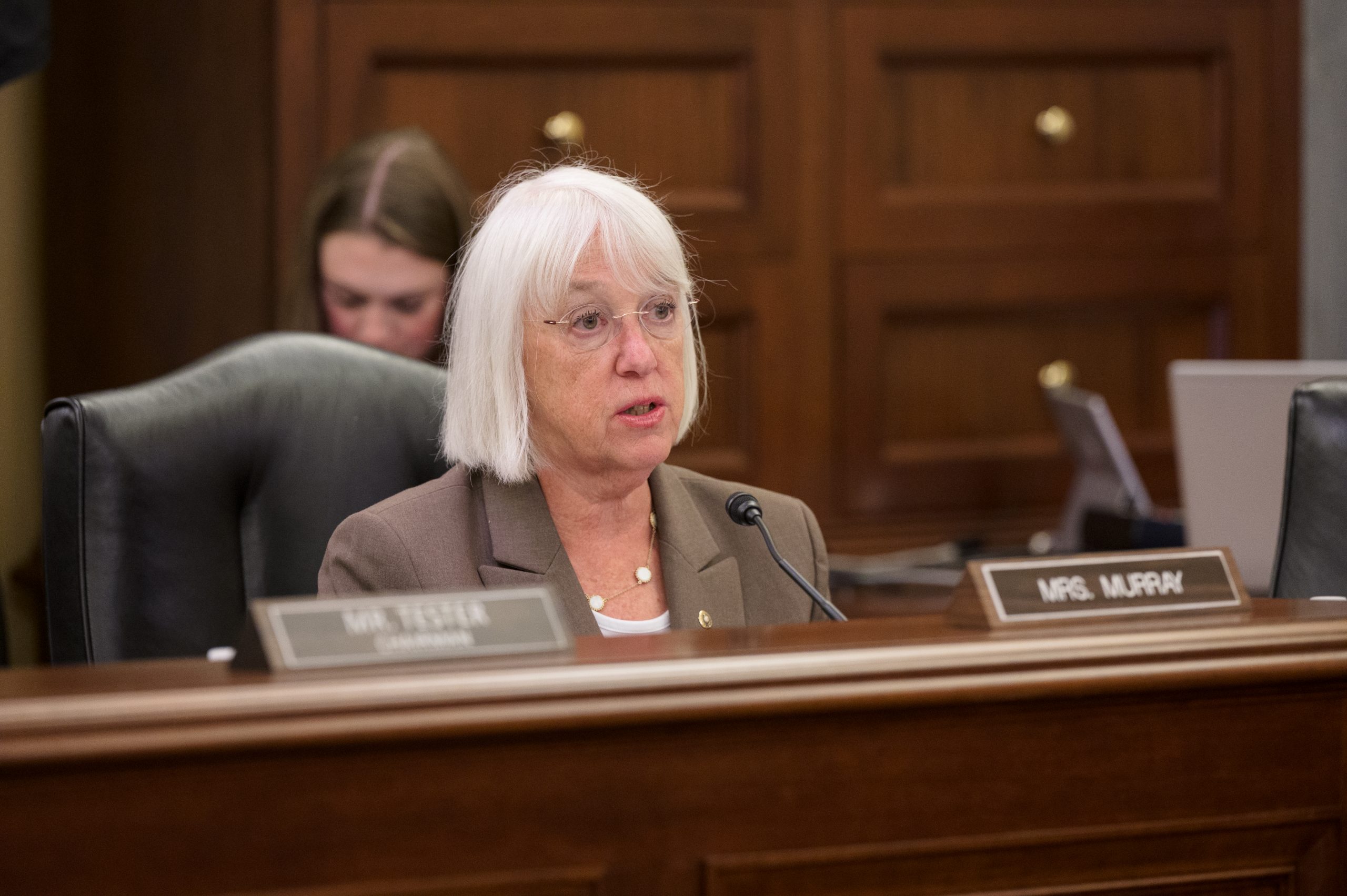ICYMI: Senator Murray Secures Millions for WA Agriculture Priorities, Protects Nutrition Assistance in Draft Appropriations Bill – MÁS AQUÍ
Senador Murray: “This funding will play an important role in protecting the resources and habitats that farmers, families, and communities in our state rely on.”
Washington DC – Today, U.S. Senator Patty Murray (D-WA), Chair of the Senate Appropriations Committee, announced $74.3 million in grant funding to support and conserve watershed and groundwater resources for farmers across Washington state. The projects, which will also support local efforts to reduce greenhouse gas emissions, are a part of the Natural Resources Conservation Service’s Regional Conservation Partnership Program (RCPP), a partner-driven approach to conservation that funds solutions to natural resource challenges on agricultural land. The Natural Resources Conservation Service is part of the U.S. Department of Agriculture (USDA). The funding for these grants comes from the 2018 Farm Bill and the Ley de Reducción de la Inflación (IRA), legislation Senator Murray was instrumental in passing as Assistant Majority Leader last Congress; the IRA was the largest-ever investment in climate action in American history.
“This enormous investment in watershed and groundwater conservation in Washington state is a direct result of the federal resources we were able to secure for the Regional Conservation Partnership Program in the Ley de Reducción de la Inflación, and this funding will play an important role in protecting the resources and habitats that farmers, families, and communities in our state rely on,” dijo el senador Murray. “Whether it is conserving precious watersheds, preserving critical habitats, or working to reduce our state’s greenhouse gas emissions, these federal dollars will help Central Washington take a big step forward in addressing the climate crisis and building climate resilient communities.”
The projects funded in Washington state include:
- $39,966,600 for the Odessa Groundwater Replacement Program in partnership with the Grant County Conservation District to support the replacement of groundwater irrigation in the Odessa Subarea Aquifer. This water source will have the capacity to deliver to 18,426 acres of farmland in Central Washington, and the funding will help conserve as much of the remaining aquifer as possible for the 25 communities that rely on it for their drinking water supply. Specifically, the funding will go towards three projects that are part of the Odessa Groundwater Replacement Program: the EL 84.7 Landowner Extension Mainline ($19,666,666), EL 80.6 Landowner Extension Mainline ($13,100,000), and the EL 86.4 On-Farm Project ($7,200,000). More information on each of these projects is AQUÍ.
- $17,804,878 for Upper Yakima River Water Supply and Fish Habitat Improvements in partnership with the Kittitas County Conservation District to address critical needs for integrated conservation and restoration of watersheds in the Upper Yakima River of Central Washington. This supports the Yakima Basin Integrated Plan, a 30-year water resiliency plan to protect and enhance fish and natural resources, improve water availability and reliability, establish more efficient water markets, manage the variability of water supplies, and prepare for the uncertainties of climate change through operational and structural changes throughout the watershed. This project will replace 6 irrigation diversion structures with fish friendly structures, opening up 2 miles of habitat, install 3 acres of riparian habitat; realize over 1,000 acre/feet of annual water savings.
- $16,500,000 for the Agspire Incorporated’s Absolute Enteric Methane Reductions in Washington State Dairies project to help producers reduce and avoid greenhouse gas emissions. This project will help reduce the region’s greenhouse gas emissions, while providing producers in the milkshed with approximately $23 million in additional revenue to support with use of 3-NOP, a chemical that can be added to cow feed to reduce emissions in the milk production process. This reduction is equivalent to the carbon implications of taking 50,069 cars off the road.
More information on each of these projects is available AQUÍ.
More on the Regional Conservation Partnership Program is AQUÍ.
###


